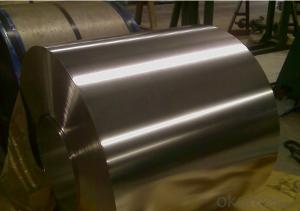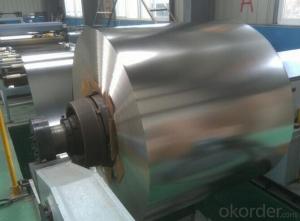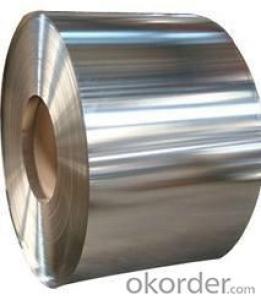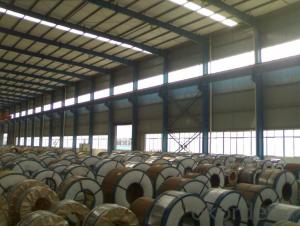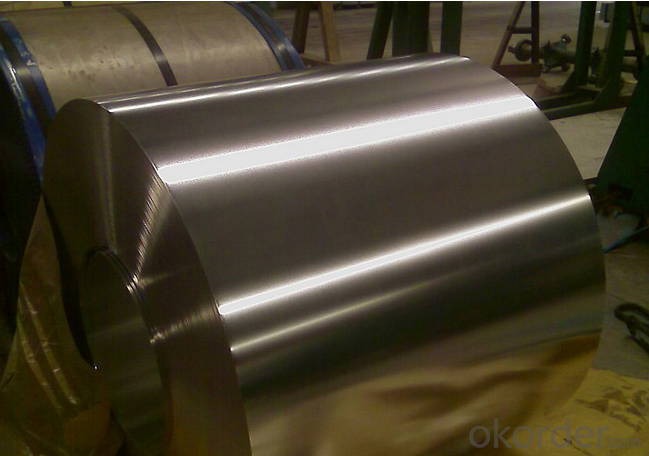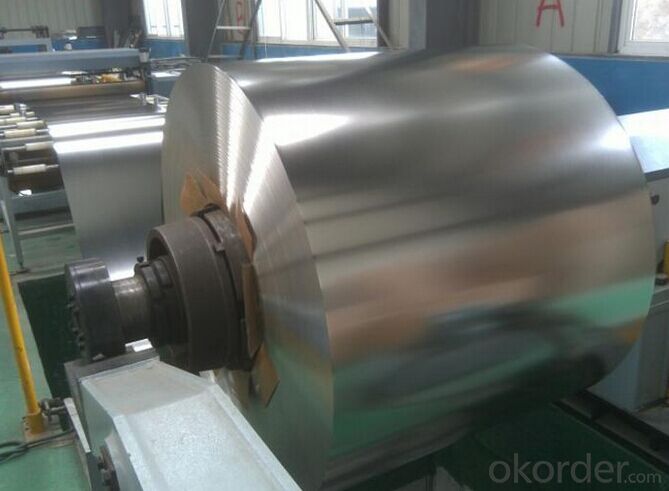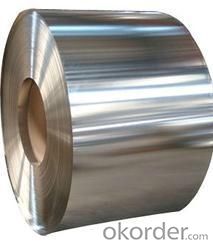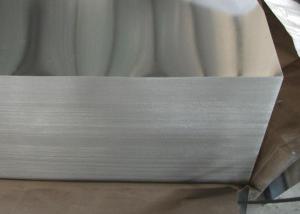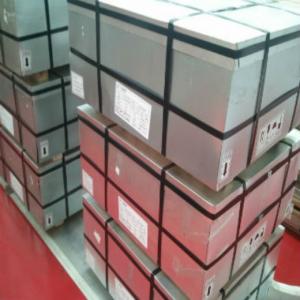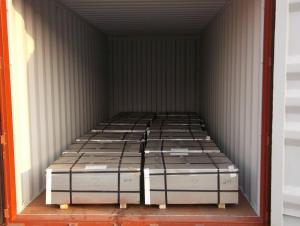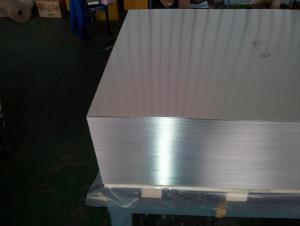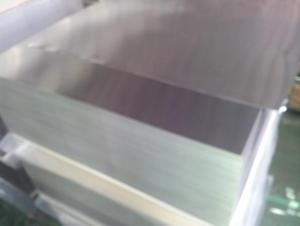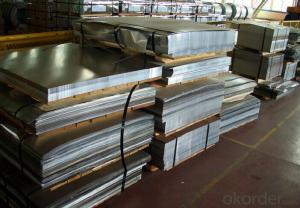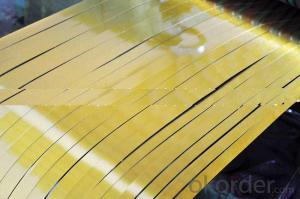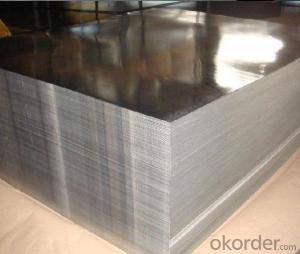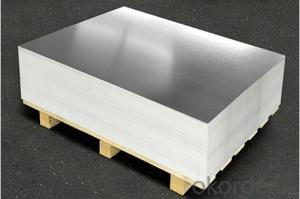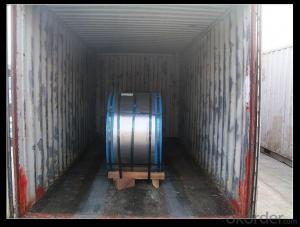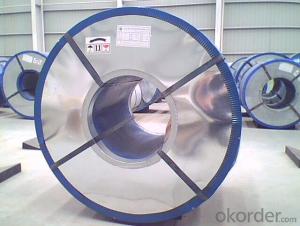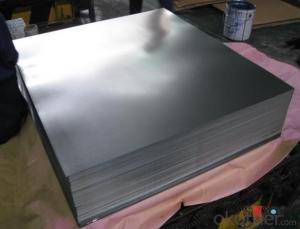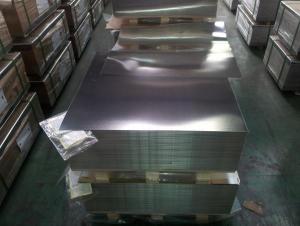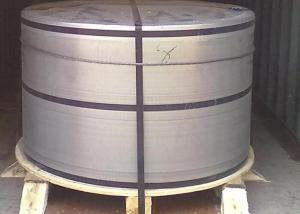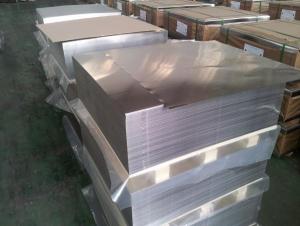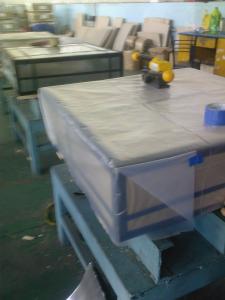Electrolytic Tinplate Coils / Sheet for Foods Can Packaging
- Loading Port:
- Tianjin
- Payment Terms:
- TT OR LC
- Min Order Qty:
- 25 m.t
- Supply Capability:
- 7000 m.t/month
OKorder Service Pledge
OKorder Financial Service
You Might Also Like
1.Structure of Electrolytic Tin Plate Coils and Sheets for Foods Metal Packaging Description
Electrolytic Tin Plate Coils and Sheets for Foods Metal Packaging, is one thin steel sheet with a coating of tin applied by electrolytic deposition. Tinplate made by this process is essentially a sandwich in which the central core is strip steel. This core is cleaned in a pickling solution and then fed through tanks containing electrolyte, where tin is deposited on both sides. As the strip passes between high-frequency electric induction coils, it is heated so that the tin coating melts and flows to form a lustrous coat.
2.Main Features of the Electrolytic Tin Plate Coils and Sheets for Foods Metal Packaging
Appearance – Electrolytic Tin Plate is characterized by its beautiful metallic luster. Products with various kinds of surface roughness are produced by selecting the surface finish of the substrate steel sheet.
Paintability and printability – Electrolytic Tin Plates have excellent paintability and printability. Printing is beautifully finished using various lacquers and inks.
Formability and strength – Electrolytic Tin Plates have got very good formability and strength. By selecting a proper temper grade, appropriate formability is obtained for different applications as well as the required strength after forming.
Corrosion resistance – Tinplate has got good corrosion resistance. By selecting a proper coating weight, appropriate corrosion resistance is obtained against container contents. Coated items should meet 24 hour 5 % salt spray requirement.
Solderability and weldability – Electrolytic Tin Plates can be joined both by soldering or welding. These properties of tinplate are used for making various types of cans.
Hygienic – Tin coating provides good and non toxic barrier properties to protect food products from impurities, bacteria, moisture, light and odours.
Safe – Tinplate being low weight and high strength makes food cans easy to ship and transport.
Eco friendly – Tinplate offers 100 % recyclability.
Tin is not good for low temperature applications since it changes structure and loses adhesion when exposed to temperatures below – 40 deg C.
3.Electrolytic Tin Plate Coils and Sheets for Foods Metal Packaging Images
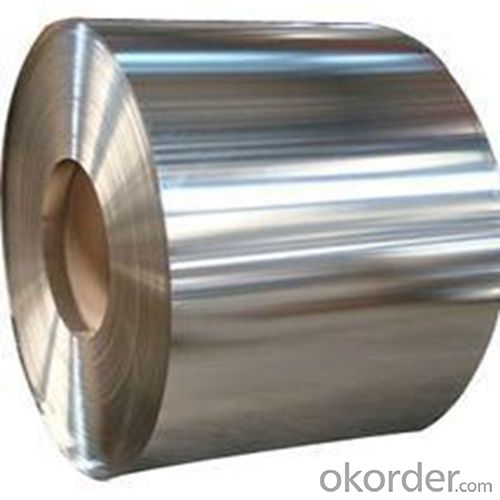
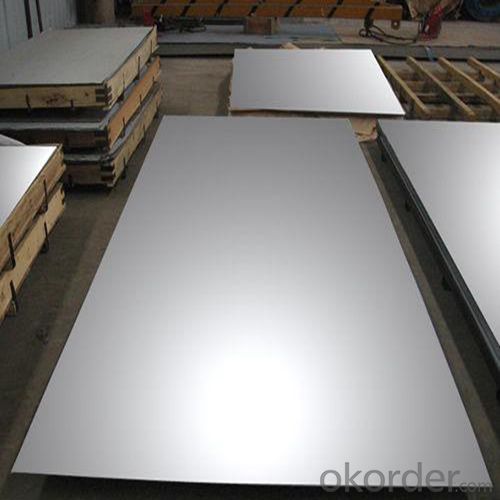
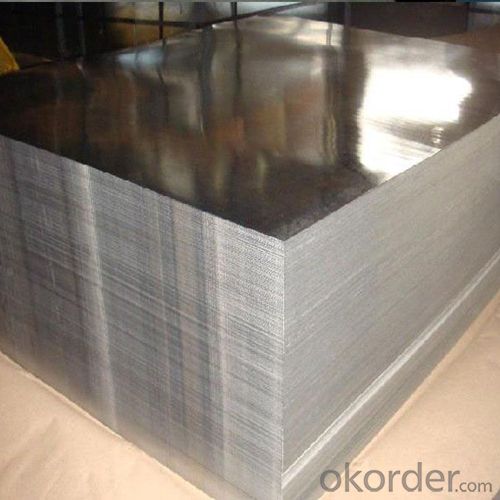
4.Electrolytic Tin Plate Coils and Sheets for Foods Metal Packaging Specification
Standard | ISO 11949 -1995, GB/T2520-2000,JIS G3303,ASTM A623, BS EN 10202
|
Material | MR,SPCC |
Thickness | 0.15mm - 0.50mm |
Width | 600mm -1150mm |
Temper | T1-T5 |
Annealing | BA & CA |
Coil Inner Diameter | 508mm |
Weight | 6-10 tons/coil 1~1.7 tons/sheets bundle |
Passivation | 311 |
Oil | DOS |
Surface | Finish,bright,stone,matte,silver |
5.FAQ of Electrolytic Tin Plate Coils and Sheets for Foods Metal Packaging
- How are the Electrolytic Tin Plates specified?
The Electrolytic Tin Plates are specified as per the steel base, extent of tempering, the coating weight, annealing method and the surface finish.
- How many types there are for base steels?
The base steels are of three types: Type MR, L, D
-What your tinplate material is used for ?
Tinplate is widely used for the packaging of products. Such as food cans,
beverage cans, pet cans, closures, general line cans and so on.
Printed Tinplate is offered!!
-How to place .an order or contact you ?
Please send us Email. we will give you a quick response in seconds .
- How is your quality ?
All our quality is prime even the secondary quality . We have many years experience
In this field with serious quality control standard . Advanced equipment, We welcome your visit to our factory .
- Q: Can tinplate be used for microwaveable packaging?
- No, tinplate cannot be used for microwaveable packaging as it is not suitable for heating food in a microwave due to the metal composition.
- Q: How does tinplate contribute to the safety and integrity of packaged products?
- Tinplate contributes to the safety and integrity of packaged products by providing a protective barrier against external factors such as moisture, light, and oxygen. This helps to prevent the deterioration and contamination of the packaged goods, ensuring their quality and extending their shelf life. Additionally, tinplate is a durable and sturdy material that offers excellent resistance to impact and mechanical damage, safeguarding the contents during transportation and handling.
- Q: How does tinplate impact the overall product design?
- Tinplate has a significant impact on the overall product design as it enhances the visual appeal and durability of the product. It provides a shiny and smooth surface, which can be utilized for branding and adding aesthetic elements. Additionally, tinplate offers excellent corrosion resistance, making it suitable for packaging products that require protection from moisture and oxygen. Its malleability allows for intricate shaping and forming, enabling designers to create unique and eye-catching product designs.
- Q: How can tinplate be customized for branding purposes?
- Tinplate can be customized for branding purposes through various methods such as printing the brand logo and design on the surface of the tinplate, using different colors and finishes to enhance the visual appeal, embossing or debossing the brand name or slogan on the tinplate, and even incorporating unique shapes or patterns that represent the brand identity. These customization techniques help in creating a distinctive packaging solution that effectively promotes the brand and attracts customer attention.
- Q: How is tinplate coated for cosmetic packaging?
- Tinplate is typically coated for cosmetic packaging through a process called electrolytic tin coating. In this method, a thin layer of tin is electroplated onto the surface of the tinplate to enhance its corrosion resistance and provide a smooth and attractive finish.
- Q: How many kinds of tinplate are there? What is the code number?
- Specification: Tinplate tinplate cans (three cans) is mainly divided into "15120", "15173", "15240" etc.. "15120" capacity is 2.2kg, diameter is 150.3, height is 120; "15173" capacity is 3kg, diameter is 150, height 173; "15240" capacity is 4.5kg, diameter is 150, height is 240.
- Q: Can tinplate be used for packaging of corrosive substances?
- No, tinplate is not suitable for packaging corrosive substances as it can react with the corrosive materials and corrode, leading to potential contamination and compromised packaging integrity.
- Q: How does tinplate packaging contribute to reducing food waste?
- Tinplate packaging helps reduce food waste by providing a secure and durable barrier that protects food from external elements, such as air, light, and moisture. This helps to extend the shelf life of food products, preventing spoilage and contamination. Additionally, tinplate packaging is highly recyclable, allowing for the efficient recovery and reuse of materials, reducing the environmental impact and promoting sustainability.
- Q: How does tinplate perform in terms of temperature resistance?
- Tinplate performs well in terms of temperature resistance, as it can withstand high temperatures without warping or losing its structural integrity.
- Q: What are the disadvantages of using tinplate in packaging?
- One of the disadvantages of using tinplate in packaging is its susceptibility to corrosion. Tinplate can rust when exposed to moisture and other corrosive elements, which can compromise the integrity of the packaging and potentially contaminate the product. Additionally, tinplate is relatively heavy compared to other packaging materials, which can increase transportation costs and carbon footprint. Lastly, tinplate is not as malleable as other materials, limiting its versatility in certain packaging designs.
Send your message to us
Electrolytic Tinplate Coils / Sheet for Foods Can Packaging
- Loading Port:
- Tianjin
- Payment Terms:
- TT OR LC
- Min Order Qty:
- 25 m.t
- Supply Capability:
- 7000 m.t/month
OKorder Service Pledge
OKorder Financial Service
Similar products
Hot products
Hot Searches
Related keywords
